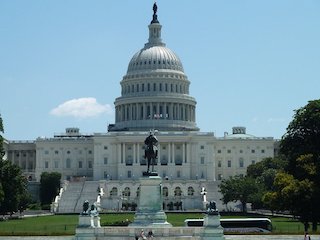UPDATE Inside Towers reported the House Energy and Commerce Committee recently sent to the full House a measure to speed how long state and local governments can take to approve or reject broadband infrastructure permits. The U.S. Conference of Mayors says it limits the rights of localities.
The bill proposes using a 60-to-90-day shot clock. If that runs out, the permits would be deemed granted. The measure comes as NTIA prepares to allocate $42.5 billion in the Infrastructure Law to build broadband nationwide. Telecom providers told lawmakers that lengthy permit delays cost them time and money.
Bill supporters say the measure would ensure that broadband projects won’t get slowed down by bureaucratic red tape. A shot clock “would streamline the process” and create “clear rules of the road for when these timeframes begin and end,” said the bill sponsor, Rep. Buddy Carter (R-GA).
Ranking Member Rep. Frank Pallone (D-NJ), argued that a lack of staff “particularly in smaller towns and counties” could have a hard time meeting the bill’s “arbitrary” and “tight” deadlines. “There is a lot more to these decisions than a simple yes or no,” said Pallone.
The U.S. Conference of Mayors says that by going over their heads to approve permits based on an arbitrary timeline, the federal government would be preempting local governments’ ability to control night work or if and when roads are closed. The mayors also argued that the bill would weaken cities’ leverage to push companies to provide service in poor communities, according to Route Fifty. It “would bestow on broadband providers an unprecedented federal grant of access to state and local public property, but impose no obligations on those providers to serve ‘unserved’ and ‘underserved’ Americans,” said the group in a resolution.
Under the proposal, state and local governments would have 90 days to reject applications by cable companies to construct fiber projects that are underground or on a public right-of-way. The deadline is tighter for wireless projects, giving governments only 60 days if it involves using an existing structure. In both cases, some projects are given more time depending on circumstances.
But Gerard Lederer, a telecom consultant who works with the U.S. Conference of Mayors, notes that the federal government has 270 days to approve broadband permits. “Think there’s a fundamental equity issue there?” he asked Route Fifty rhetorically.
The changes would help smaller companies build broadband in rural areas, according to Michael Romano, executive vice president of NTCA – The Rural Broadband Association. “Where we really run into the biggest issues are federal lands and across state highways,” he said. “Having a degree of uniformity to the calculation of fees and the processes for applications is going to be huge, especially for a small company.”
By Leslie Stimson, Inside Towers Washington Bureau Chief





Reader Interactions